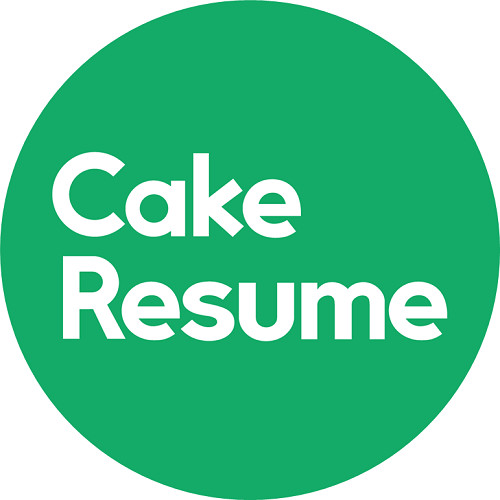Considering a Career Change? Here Are 3 Tips to a Successful Job Switch
When reflecting upon their careers, more and more people are considering the idea of a “career change”. The thought of changing jobs might stem from several reasons, like
- You can no longer learn anything new in your current position.
- Your current job is no longer exciting and you just want to try another type of work.
- You simply hope for a pay raise.
Whatever the reason, it all goes to the pursuit of a better life.
Starting a new career should not be an impulsive decision. When considering altering your career path, you should reflect carefully on the three points below, which will not only help you assess your current career status, but also give you some directions before making the decision to quit.

Ⅰ. Clarify Your Intention of Career Change
First, ask yourself "Why do I want to change my career path?".
Ask Yourself
Why do I want to change my career path?
Is it because of difficult interpersonal relationships in the workplace?
Or because you wish to acquire more experience and professional skills?
Your motive for considering a career change will guide your decision making.
Ask Yourself
Are conflicts you experienced in the office or workplace simply the result of difficult interpersonal relationships, or do they arise from the nature of the work itself?
When the idea of making a career shift comes to mind, is it simply because you want to escape from your current workplace predicament, or because you would like to pursue a better career goal?
Ask Yourself
Does the thought of "career change" appear, simply because I want to escape from my current workplace predicament? Or is it because I want to pursue a better career goal?
When someone’s focus is simply on escaping their current job, they can often be quick to compromise their principles which they otherwise would maintain. But after switching jobs on this impulse, they might end up in a even worse environment – with no guarantee that the problems of the previous job wouldn’t show up in the new one as well.
Planning your career path shouldn’t be like making day-to-day decisions. Rather, it’s more like paving a road to guide you steadily toward your goals. This is the fundamental issue that you should focus on during your career planning. Don’t be misled by fleeting emotions.
Instead, calm down and think twice about your reason of switching jobs, so that you can identify where the root problem lies and how you can appropriately react to the situation.
Ⅱ. Utilize On-hand Resources
After making the decision to start a new career, many quickly determine to resign. However, a hasty decision to resign may overlook the fact that there are often suitable resources available at their current jobs.
As mentioned before, changing careers should be planned for the long run, so don't rush to resign right away. This not only gives you more options, but also allows you to experiment in your new field of interest and get your feet wet before diving in. If you’re lucky enough, you’ll be able to create your own portfolio which will make the process of career switch even smoother.
There are usually two types of career changes. One is that the skills used remain the same, but the field or industry changes (for example, switching sales job from financial industry to technology industry). The other type requires obtaining new knowledge and skills, such as switching jobs from sales to PM or marketing.
Two types of career changes
● Same skill-sets, but different industries
● New skill-sets required
Regardless of the type of career change, before resigning, try to gradually incorporate more of your desired job content into your current job and steer your career direction toward this goal. This way, when applying and interviewing for a new job, your interviewer will be more convinced that you have a certain degree of knowledge and enthusiasm for this new position.
Many people overlook the fact that the cost of a career switch isn’t just the absence of salary while in between jobs. In addition to giving up the previous job’s salary and the cost of time while seeking a new job, you need to also consider the transition time after eventually entering a new company and getting used to the new work environment.
If your purpose of changing jobs is simply to improve your working environment or switch up your work content, then a job rotation at your current company might also be a viable option.

Ⅲ. Research on the Labor Market and Develop a Learning Plan
If you’ve made up your mind on a career switch, whether due to your working environment or your work content, don’t forget to research on the labor market of the new industry you desired to enter in advance. Is the current labor market saturated? What industries will have a more suitable corporate culture for you? What is the salary structure in this industry?
Research on the New Market
● Is the industry's current labor market saturated?
● What industries will have a more suitable corporate culture for you?
● What is the salary structure in this industry?
In addition to researching on the field you’re interested in, if you plan to enter a completely new industry, it’s also necessary to develop your own study plan. Apart from building up a work portfolio to better your resume, you should also review your strengths and weaknesses – maintain and develop your strengths while making up for your weaknesses.
There are numerous lectures, forums and courses available these days. Participating in these activities will not only strengthen your abilities, but also provide you opportunities to meet different people and establish connections.
In fact, information for many job vacancies often comes from 1st degree, 2nd degree and other degrees of contacts on social media platforms, such as LinkedIn and Facebook (that is, from your friends, friends’ friends, etc.). So, take advantage of relevant activities and courses to make connections, which might make your journey of starting a new career easier.

Decide on a Suitable Career Change Plan
After thinking thoroughly over these three aspects, eventually we will need to determine the most suitable career-change plan for ourselves to minimize the gaps we may face in our career. In addition to rotating positions internally or seeking job opportunities through your network (both of which we’ve discussed above), introducing yourself to new companies in a reasonable manner or letting friends know you’re considering job switch are some other feasible options.
While these plans are quite similar, the key is to determine the most suitable solution for your situation. After all, in the lonely journey of job-change, the most important thing is to be determined. It's not an easy thing to start a new career. While we often see that others switch jobs seemingly easily, we can’t see how much time and effort they spent behind the scenes during the process of career switches.
Ready to start a new career? You need a professional resume to impress your future employer! CakeResume is highly recognized by job seekers due to handiness & usefulness. Create your CakeResume and land your dream job!
More Career and Recruitment Resources

With the intention of helping job seekers to fully display their value, CakeResume creates an accessible free resume/CV/biodata builder, for users to build highly-customized resumes. Having a compelling resume is just like a piece of cake!






